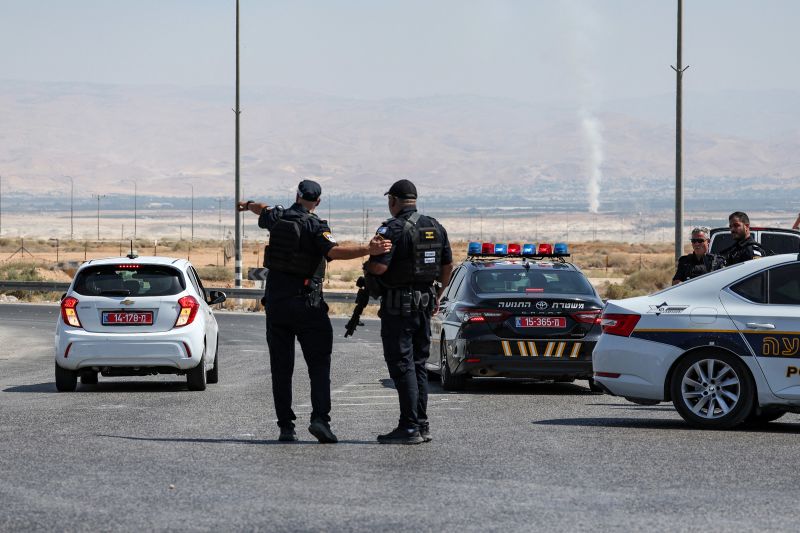
Tragic Shooting: Three Israeli Border Guards Slain at Allenby Crossing from West Bank to Jordan
The recent tragic incident at the Allenby Crossing between the West Bank and Jordan has sent shockwaves through the region. Three Israeli border guards lost their lives in a senseless act of violence, highlighting the ongoing tensions and complexities of the Israeli-Palestinian conflict.
The Allenby Crossing, also known as the King Hussein Bridge, serves as a crucial gateway between Israel and Jordan. Situated along the Jordan River, it connects the West Bank to Jordan and beyond. For many, it is a passage for travel and commerce, but for others, it represents a flashpoint of conflict and contention.
The border guards stationed at the Allenby Crossing play a vital role in maintaining security and order in a volatile region. They are tasked with ensuring the safety of travelers and enforcing regulations at this strategic checkpoint. However, their duties also expose them to significant risks, as evidenced by the recent tragic incident.
The loss of three Israeli border guards in a single attack is a stark reminder of the precarious nature of the security situation in the region. It underscores the constant threats faced by those on the frontlines of conflict, as well as the toll that violence takes on individuals, families, and communities.
In response to the attack, there have been calls for increased security measures at the Allenby Crossing and other border checkpoints. These calls highlight the need for enhanced vigilance and preparedness in the face of ongoing threats and challenges.
Moreover, the incident has reignited discussions around the underlying issues fueling the Israeli-Palestinian conflict. It serves as a grim reminder of the urgent need for a peaceful resolution to the long-standing dispute, one that addresses the legitimate concerns and aspirations of both Israelis and Palestinians.
As we mourn the loss of the three Israeli border guards, we must also reflect on the broader implications of their sacrifice. Their deaths serve as a somber reminder of the human cost of conflict and the pressing need for meaningful dialogue, reconciliation, and peace in the region.
In the midst of tragedy, we must find the strength to come together, bridge our differences, and pursue a future defined not by violence and division, but by understanding, empathy, and coexistence. Only through such collective efforts can we honor the memory of those who have fallen and strive towards a more peaceful and secure future for all.
